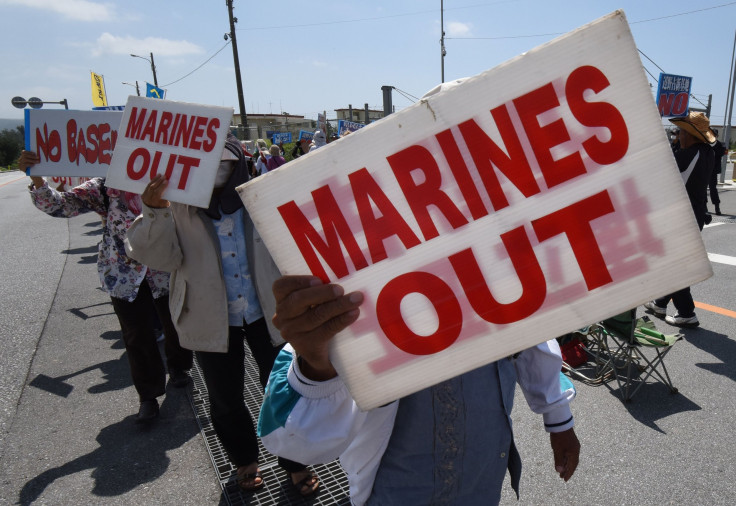Japan’s Okinawa Sees Massive Protests Against US Military Bases After Woman’s Murder

Tens of thousands of protesters took to the streets Sunday to stage a massive demonstration against the presence of U.S. military bases on the Japanese island of Okinawa, following the arrest of an American suspected of raping and murdering a local woman.
The killing of the woman, who had been missing for several weeks when her body was found last month, sparked a major outrage in Okinawa, where tensions have been running high over crime linked to American troops. The U.S. contractor was arrested on May 19 on suspicion of abandoning the woman’s body. He is a former Marine.
The rally called for a review of the U.S.-Japanese security agreement, which burdens Okinawa with hosting the bulk of American military presence in the country.
Japanese Prime Minister Shinzo Abe’s government is behind the agreement as it wants the Asian nation to take on a bigger military role on the international stage. However, those at the rally said they wanted a more peace-oriented Japan.
“I want Abe to feel Okinawa's pain,” Shigenori Tsuhako, who attended the event, told Reuters. The 70-year-old said he came because his granddaughter is the same age as the 20-year-old murder victim, Rina Shimabukuro.
Organizers said 65,000 people attended the rally at a park in central Naha, the capital city of Okinawa, Reuters reported.
Okinawa Gov. Takeshi Onaga told the crowd that he wanted to apologize to the woman for failing to protect her, the Associated Press reported.
“We had pledged never to repeat such an incident,” he said. “I couldn’t change the political system to prevent that. That is my utmost regret as a politician and as governor of Okinawa.”
Onaga also said he would fight to have those U.S. Marines moved off the island.
The U.S. and Japan agreed in 1996 to close the Futenma air station, located in a residential area, after the 1995 rape of a 12-year-old Japanese schoolgirl by three U.S. military personnel led to mass demonstrations.
That plan has been on hold because residents near the proposed relocation site have put up strong resistance to the move, worrying about noise, pollution and crime.
The U.S. military has repeatedly tried to appease local sentiments in Okinawa. It reportedly maintains that the crime rate among its ranks is lower than among the general public.
After recent incidents of crime allegedly involving U.S. service members, a 30-day curfew, called a “period of unity and mourning” by Lt. Gen. Lawrence Nicholson, was put in place late last month and is set to last until June 24. The curfew, he said, “will include the postponement of all festivals, celebrations and concerts on our bases and stations.”
Earlier this month, the U.S. Navy also imposed a drinking ban after a sailor was arrested on suspicion of drunken driving in Okinawa, allegedly driving the wrong way on a freeway and crashing into two vehicles, injuring two people. The restriction was eased Friday.
Okinawa hosts 50,000 U.S. nationals, including 30,000 military personnel and civilian contractors.
© Copyright IBTimes 2024. All rights reserved.












